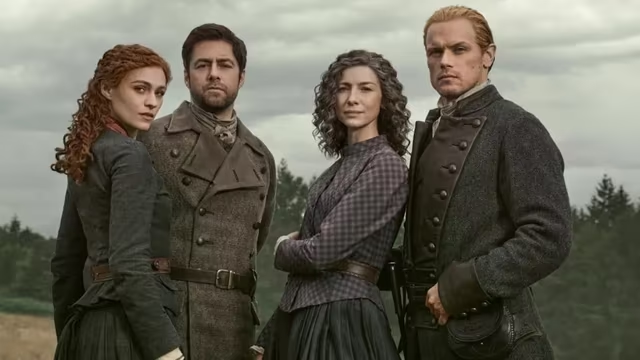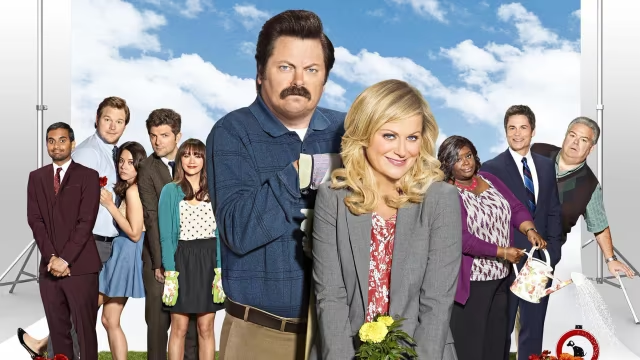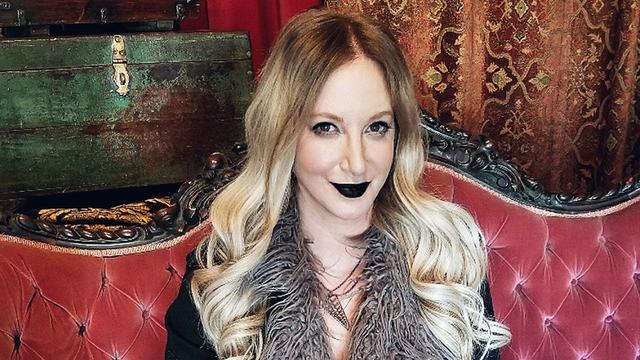If you click on a link and make a purchase we may receive a small commission. Read our editorial policy.
Superman, Lois, and Jon reunite with Dan Jurgens and Lee Weeks inside Action Comics in 2023
The legendary creator is reteaming with artist Lee Weeks for a new Action Comics run in 2023, as announced at NYCC '22

Turns out, you can go home again — well, if you’re Clark Kent. As just announced at New York Comic Con, starting in January, DC’s Action Comics is growing in size with the addition of a new back-up strip by Dan Jurgens and Lee Weeks, set in the period where Clark, Lois and a nine-year-old Jon Kent were living on the farm and trying to live the quiet life.
Clark isn’t the only one going back with this strip, of course; the creative team of Jurgens and Weeks have been telling the story of Lois and Clark as (relatively) new parents for some time, starting with 2015’s Convergence: Superman mini-series and expanding with the following year’s Superman: Lois & Clark mini. Popverse talked to Jurgens about the upcoming series, his relationship with Superman, and the ways in which Clark and Jon are unlike Batman and Damian Wayne.
Popverse: Dan, you and Lee Weeks working together to tell stories set when Jon was younger — it’s like a reunion for the team behind Superman: Lois & Clark!
Dan Jurgens: The idea is that what we want to do is go back to the tone of that book, and when I say we, I mean Lee Weeks and I both. He did such a gorgeous job the first time out. He has this sensitivity to his work that is both brilliant and deep all at the same time. And by by depth, I mean, his level of storytelling and the emotion that he brings to the characters faces, just the construction of the page, the composition within each panel is always so on the money, that it's always a joy to to work with Lee, and part of it is because, you know, he is into these characters. And I think it's safe to say that he loves them. And this type of material as well.
I think what we want to do is go back to some of the tone that we had there, where we really got to see how Lois and Clark interacted with Jon as parents and as a family unit, especially when it isn't so much Superman putting on the red cape to go outside and and fight whatever obstacle is in the way. I think we can see so much about how they function as people and as as a family through the way they are raising young Jon.
You’re directly responsible for the current era of Superdad, as I like to call him. You wrote the 2015 Convergence mini that indirectly introduced Jon Kent and then the Lois & Clark series where we got to see the two characters raise the character to a degree. The idea of the two characters as parents has gone beyond comics now, of course, with the CW series playing heavily on that idea, and it’s one that, for me as a parent, feels particularly natural for Clark and Lois alike. What went into your thinking about this direction for them?
There are a couple of things that go into that. If I go back to the 80s, when I first started on Superman, one of the nicest things that John Byrne had done when he came to DC and sort of freshened up the Superman franchise and everything, is he brought back Clark's parents Ma and Pa Kent. I think what we all loved as we were writing those characters is the way that relationship helped to humanize Clark — and if you humanize Clark, you've obviously humanized Superman. The way he related with them and interacted with them, I think it provided a lot of insight into his character and help people better understand Superman.
So if we jump ahead, you know, around 2015, we started talking about the Convergence project and what the world would be. I saw this idea of Jon Kent as something that would serve that same sort of function. If we were going to have Lois and Clark have a child, what that would give us in terms of insight into who they are and their characters and the way they relate with Jon? I think that once again, that helps to humanize Superman. And I always believe that part of the idea of understanding Superman and not seeing him as this mega powerful character who's come from outer space and everything, but just seeing him as a human is to have that level of humanity around him. Lois does that, his parents did that, and Jon does that as well.
The other thing I really liked about it is, it was another thing that helped separate him from Batman. Whereas Batman, we'd already seen the Damian story and everything that was set up there — Batman not knowing about Damian and not really being involved with his life as a as a young child — obviously then we get the opposite of that with Superman because I think that's very representative of who those characters are.
You clearly see Lois as being an equal to Clark not just in terms of their relationship, but in terms of her importance to the Superman strip, as well.
Let's go all the way back to 1938, with Action Comics #1. We should always remember that it wasn't just Superman, who first showed up there. It wasn't just Clark Kent. It was also Lois Lane.
What we saw in that moment is that — and I don't think we give enough credit to this today, because now today, it's so common — back in 1938, you had this woman working for a newspaper, who was very much her own person working for that paper, and being, I think, a very important journalist. And so, right from the very get go, what Siegel and Shuster provided us was this kind of blueprint for a character who is clearly very accomplished and, for lack of a better term, certainly had a lot on the ball herself.
So in terms of her who Lois is, I think she is a supremely competent reporter. I think she has a tremendous amount of insight, but I also see her as very, very human. I think there's shorthand for that, unfortunately, at times, became 'well, she’s a bit of a bitch,' and no, it's not that. It's that she does her job, she did it well, and continues to do it well. And at the same time, we see this ability to have her to interact with a young child, and have that human component.
What I like about Lois is — we actually refer to this in our first story, where we have the Kent family take a vacation, and they go back to the farm where they lived when they were raising Jon, and Clark was kind of functioning on the sly in the black costume. In the course of that, they talk about going home, and it gives Lois a chance to say, 'well, I never really had a home. I was raised as a military brat on Air Force Base after you know, military base after military base.' I think that provides insight to her. As much as we think of Clark as moving toward humanity and sort of adopting Lois’s way of life, Lois also moves to his as well, and I think that's what you call a good relationship.

These new Lois and Clark strips connect to what you're doing in the 30th Anniversary Death of Superman Special, right?
It’s built off that, yes.
How does it feel being a creator directly responsible for two of the largest moments in Superman’s entire comic book history? Not just the Death of Superman, but also allowing him to be a father.
You know, I would actually add a third.
The wedding! Of course, you were there for Lois and Clark getting married!
Yeah, I wrote and drew the final sequence with a big wedding scene and everything like that. I think it's been this very interesting process of guiding Superman through these major moments in life. I think what we see is, even the way I relate to Superman is probably changed a little bit. Because, you know, if you go back to that time, especially before the wedding, I would do a lot of shots with Superman's eyes glowing red and everything in the hangar on his face. I think now, he's a little more mature than that. And I don't think he's quite as quick to anger. I think now he's much more likely to try and calm down and settle a situation without that level of violence being necessary.
What keeps bringing you back to Superman? You’ve had this impressive career far beyond the character — you’ve written and drawn characters like Spider-Man, Thor, the Justice League, you created Booster Gold, but you keep coming back to Superman. Is it that you see yourself in him, in some way? How much of you is in Superman?
That's hard to say, and probably something that might be better for others to just to define. What I do know is this. If we talk about sort of that classic Superman upbringing of growing up in a small town in the middle of Kansas — I hesitate to use the phrase Midwestern values, but that's one that was ascribed to it long before I ever got here — my background is somewhat the same. I grew up in a very small town in the Midwest. And I think that's part of why I related to Superman as a kid. As a kid, I'd always be reading about, well, here's Spider-Man in New York City, and that seems a little foreign to me. So I think there might be some component to that.
But I think more than anything, it's the ability to probably see Superman for who he is, and what makes a good Superman story. I think it's so often the circumstances that Superman has put in what is the choice that he has to make. How does it compromise his values? It's not just who is he fighting that month, or in that particular issue. There's so much more to it than that. And I think, you know, if we look at the TV show now, that's what they do such a good job is they're constantly giving Clark these choices that he has to wrestle with, and fortunately, he's a guy who, you know, always seems to make the right choice, but we see him struggle sometimes to do it, because he's conflicted about it. Ultimately, that's to me who Superman is.
As you said, the new Lois and Clark back-up spins out of what you’re doing in the 30th Anniversary Death of Superman special. What is it like, coming back to that material, the death of Superman, after three decades? As someone who remembers clearly buying the comic at the time, I have to say that it being something that happened three decades ago is hard to deal with.
I'll be the first one to say it certainly doesn't seem like it's 30 years.
It's always nice to be part of a story that resonates so many years later, because, you know, none of us in this business probably work the with the idea that, 'gee, we're going to do it and it's going to be forgotten and never brought up again.' I think, in fact, for the first, you know, 10, 15 years I was in the business, it was rare to have our work reprinted at all, you know, and now we've gotten to this point where virtually everything that is done is collected somehow and pulled into either a trade paperback or a hardcover or, you know, an omnibus or something.
Back then, we didn't really do very much of that. You had to have a special story even to get reprinted, and I only had a couple of things kind of hit that level. And so to now actually jump ahead this far in time, and still have that exist fondly in people's minds and hearts and still have the books coming out, it is a treat. It's a pleasure. You do get a sense of creative accomplishment to it. Just to know that you did something that has legs, and that's a nice feeling.
You’re so closely associated with Superman at this point, and you do keep returning to tell stories like these — ones that are, perhaps, outside of the norm for the character but say something about, as you say, the moral character of Clark and Lois. Do you feel like a guardian of Superman, in some way?
I certainly can't use the word “guardian,” because ultimately, that's up to the people at DC and Warner and everything else, I think what I can do is, if I'm asked, provide some of the right answers to some of the questions.
What are you hoping people get from the new Lois and Clark stories?
What I hope they will get is a little more depth in terms of what we were trying to do back then. When Lee and I did the first series, we had a lot of fun really cultivating this sort of a different life for Superman. We kind of said, 'you know, Superman doesn't always have to be in Metropolis. Superman can function virtually anywhere.'
Superman has so much depth to him that I think whenever we can look at some of these different aspects of his life, that it can be quite fascinating. When you're doing the Superman comics, you end up focusing so much on the big story, the battle, that even back [in the '80s and ‘90s], we would say 'oh gee, we wish we could just do, I don’t know, our 75-page Bibbo special or whatever,' because there's always that desire to explore the characters a little more. So to be able to do that here, I think that's going to be fun for us as creators, and by extension, then I think readers will get some more insight to those characters, and that's what I want them to take away from it.
Throughout all of New York Comic Con 2022, Popverse is going to be keeping up with everything that happens, from panels and breaking news to interviews and the best cosplay on the show floor. We’ll be sharing everything as it happens — including exclusive livestreams from the biggest panels at the show — so let us keep you in the loop all weekend.
If you’ve enjoyed this coverage, please give Popverse a shoutout by tagging us on @PopverseSays on Twitter, Instagram, or Facebook, or linking to us at www.thepopverse.com.
About New York Comic Con 2022
Dates
-
Location
New York City
USA
Follow Popverse for upcoming event coverage and news
Find out how we conduct our review by reading our review policy
Let Popverse be your tour guide through the wilderness of pop culture
Sign in and let us help you find your new favorite thing.
















Comments
Want to join the discussion? Please activate your account first.
Visit Reedpop ID if you need to resend the confirmation email.